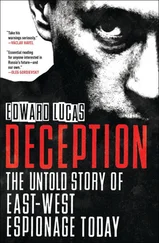The Snowden revelations have also exposed the fact that senior officials, particularly America’s Director of National Intelligence, James Clapper, have not been fully frank with Congress. He was asked in an open Senate Intelligence Committee hearing in March: ‘Does the NSA collect any type of data at all on millions or hundreds of millions of Americans?’ A correct response would have been to give a boilerplate answer: data and meta-data are collected within the law and further information would be available in a closed session. Instead he answered ‘No Sir’; when that response was queried, he continued: ‘Not wittingly … there are cases where they could inadvertently perhaps collect, but not wittingly.’ [62] http://www.washingtonpost.com/blogs/fact-checker/post/james-clappers-least-untruthful-statement-to-the-senate/2013/06/11/e50677a8-d2d8-11e2-a73e-826d299ff459_blog.html
In a strict sense that was true: phone records are not exactly ‘data’, and storing them for future scrutiny is not exactly ‘collecting’. The members of the committee were aware of the programmes concerned, having been briefed on them in classified sessions. The question was, in a sense, a trap, aimed at bouncing Clapper into revealing more than he wanted. But for all that, as a member of the executive branch, he is under a solemn duty not to mislead the legislature—or to mislead citizens who are observing its questioning of their government officials. For whatever mixture of motives or confusion, he breached that duty. He apologised later, pleading confusion not deliberate deceit. Though charges that he ‘perjured’ himself or deliberately lied to Congress are an exaggeration, in his place I think I would have resigned.
Lawyerly definitions of terms such as ‘data’, ‘collect’ and ‘abuse’ have allowed the NSA to stretch its remit in a way that some may now regard in retrospect as excessive. But it has done so within the system, not outside it. NSA officials (like their counterparts in GCHQ and allied agencies) are not cowboys, brutes or madmen. They signed up to defend their country’s freedoms, not to undermine them. They tend to be sober, law-abiding types with a punctilious regard for procedures. The dire state of their morale now is a result of Snowden’s disclosures. The consequences remain to be seen. The dangers of abuse in a woe-struck agency may be greater than in one where morale and corporate culture are healthy.
One can argue (and I would agree) that the NSA needs reform, that it has become too big, too dependent on private contractors, too sloppy in its security procedures, too hard to oversee and too slippery in its definitions of what it may and may not do. All these shortcomings are cause for concern (though not for panic) and are worthy subjects for discussion. As General Clapper himself has admitted: ‘As loath as I am to give any credit for what’s happened, which is egregious, I think it’s clear that some of the conversations that this has generated, some of the debate, actually probably needed to happen.’ [63] http://www.washingtontimes.com/news/2013/sep/12/us-spy-congress-rein-in-nsa-domestic-snooping/?page=all
It is hard to dispute that the public should be aware that the NSA has stretched the definition of material ‘relevant’ to terrorism to include warehousing the phone records of every call made or e-mail sent in America, and that the agency has had serious rows with the FISA court. Thanks to Snowden, the public now knows this. The modest reforms announced by President Obama on January 17th are also a direct result of the Snowden leaks. But such benefits need to be weighed against the costs. Nothing evinced so far justifies the catastrophic damage that the Snowden leaks have done to national security—the worst disaster in the history of American and British intelligence.
Chapter Three: Damage Control
The mere whiff of a breach acts like nerve poison on intelligence agencies. If you lose even a single document, or believe an unauthorised person has had access to it, assumptions must be of worst-case scenarios. Assume that the Russians learn that an outwardly boring Irish insurance broker in the Ukrainian capital Kiev, for example, is actually an undercover officer of Britain’s Secret Intelligence Service. What will they be able to do with that information? Will he be in danger? Will they able to find what agents he is running? If so, they must be brought out: they risk arrest. Maybe the agents are safe, but the operation cannot continue: in that case everyone involved must be stood down inconspicuously. What about colleagues? Safe houses? Dead-letter boxes? Another question is when the breach occurred. Can one be sure that this was the first instance? How solid is the ‘product’ (the intelligence obtained from the compromised network or individual)? Should it be assessed or analysed differently? Is it possible that the adversary used the breach to feed misleading information and then monitor the results? The answers to these questions may be ‘no’. But an experienced team of counter-intelligence officers must ask them, find the answers, check and double-check. The taint of even a minor breach must be analysed, contained and cleaned.
If a single breach is a serious problem, two make a nightmare—particularly if the missing material comes from different bits of the organisation. Documents which may on their own be quite anodyne can be gravely damaging if they are combined. Revealing an intelligence officer’s cover name may be no big deal. But combined with his previous travel, it could be the clue that gives the adversary details of an operation. Multiple breaches increase the problem exponentially. Each bit of compromised information must be assessed not only on its own, but in relation to every other piece of data. As the numbers mount, the maths becomes formidable. Four bits of information have 24 possible combinations. Seven have 5,040. Ten have more than three million. If Snowden has taken a million documents, the permutations that—in theory—need to be examined exceed the number of atoms in the universe.
Snowdenistas dispute claims of colossal damage. Foreign intelligence services in Russia or elsewhere do not and will not have access to the stolen material, they maintain. But dealing with secrets is a highly technical and complicated business. People build their careers on it. It requires elaborate procedures to store the information, to set and administer levels of access, to monitor who sees it, when, why and how, and particularly to authorise, log and track any copies made. It requires specially built premises, and staff who must be carefully recruited and trained and subjected to regular screening. The whole setup—with its physical, bureaucratic and human elements—involves regular checks, and possibly professional penetration tests, in which expert outsiders are tasked with trying to break the security systems. It is also designed to minimise the effects of any breach—for example by seeding the data with tell-tales (to highlight if it is being misused) or booby-traps (to act as a deterrent to malefactors). All of this takes place in the knowledge that the world’s most sophisticated intelligence agencies regard other countries’ secret data as a top priority.
Snowden’s allies may be admirable journalists. But they do not have the experience or resources to protect the information he has stolen. Their offices cannot be made safe against electronic eavesdropping. They do not know how to make their computers truly secure. The idea that the material is safe because it is encrypted is shockingly naïve: it is child’s play for a sophisticated adversary to place malware on a computer, remotely and invisibly, which logs every key stroke, and records everything that appears on the screen. Such ‘end-point vulnerabilities’ render even the heaviest encryption pointless. They can be delivered via a mobile phone or through an internet connection (or by some other subtle and secret means). Snowden knows this. It is possible that someone with his technical skills could keep the stolen data secure on his own computers, at least for a time and if he does not switch them on. But that becomes ever less likely over time.
Читать дальше












